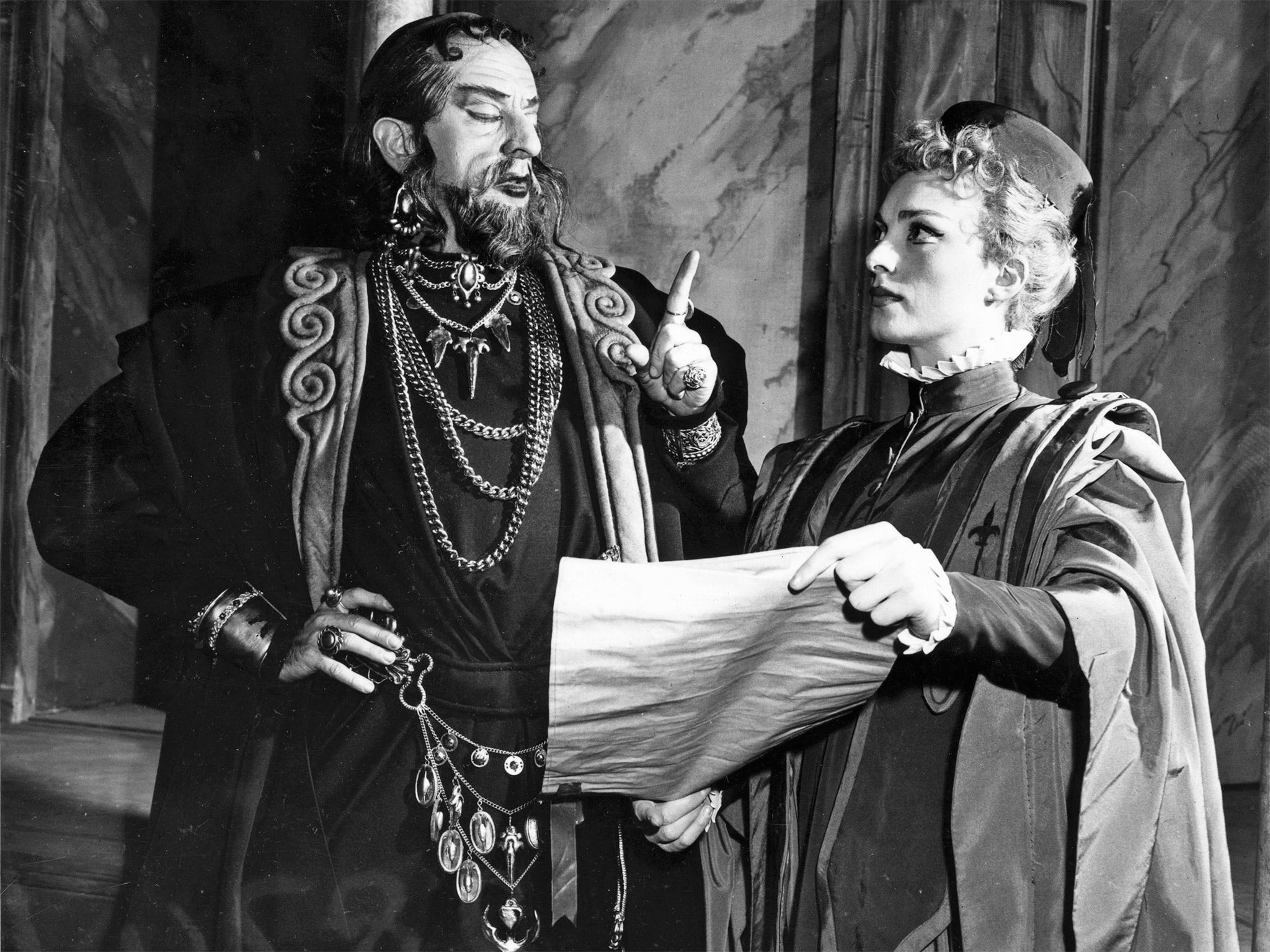The Merchant of Venice at a glance: Your brief guide to Shakespeare's most controversial play
The Merchant of Venice was probably written between 1596 and 1598

Your support helps us to tell the story
From reproductive rights to climate change to Big Tech, The Independent is on the ground when the story is developing. Whether it's investigating the financials of Elon Musk's pro-Trump PAC or producing our latest documentary, 'The A Word', which shines a light on the American women fighting for reproductive rights, we know how important it is to parse out the facts from the messaging.
At such a critical moment in US history, we need reporters on the ground. Your donation allows us to keep sending journalists to speak to both sides of the story.
The Independent is trusted by Americans across the entire political spectrum. And unlike many other quality news outlets, we choose not to lock Americans out of our reporting and analysis with paywalls. We believe quality journalism should be available to everyone, paid for by those who can afford it.
Your support makes all the difference.Plot
Bassanio fancies Portia, a wealthy heiress. He is desperate for a loan so that he can raise the adequate funds to appear a worthy suitor. Antonio says he’ll be the loan’s guarantor and Bassanio gets the money from Shylock the Jew. If Bassanio fails to repay the loan, it is agreed that Shylock will take a pound of Antonio’s flesh.
Bassanio wins the hand of Portia, but Shylock refuses his offer of repayment. He wants a piece of Antonio (literally) and demands to be paid in his flesh. However, having not read the small print on his own contract – which demanded flesh but not blood – Shylock is ordered to forfeit all he owns and convert to Christianity.
Themes
Anti-Semitism – and the revenge thereof; social injustice; love; money; worthiness.
Background
While The Merchant of Venice was probably written between 1596 and 1598, the forfeiture of deadly bonds by those who had vouched for their friends was a common theme in the late 16th century. The first recorded performances were within a few days of each other at the court of King James I in 1605, but no other productions are known of until the 18th century. In a 2004 film directed by Michael Radford, Al Pacino took on the role of Shylock, with Jeremy Irons as Antonio and Joseph Fiennes as Bassanio.
Key characters
Bassanio: amorous young suitor, in love with Portia.
Antonio: melancholic merchant of Venice.
Shylock: the Jewish moneylender who hates Antonio.
Top lines
* “I hold the world but as the world, Gratiano, A stage, where every man must play a part; And mine a sad one.” Antonio reflects on his sorrow, Act 1 Scene 1
* “Love is blind.” Jessica utters the famous phrase, Act 2 Scene 4
* “All that glisters is not gold.” In a secondary plot, Portia’s suitors are offered the choice of three caskets, one gold, one silver and one lead, Act 2 Scene 7
* “If you prick us, do we not bleed? If you tickle us, do we not laugh? If you poison us, do we not die? And if you wrong us, shall we not revenge?” Shylock defends the Jews, Act 3 Scene 1
Echoes
In the Steven Spielberg film Schindler’s List, the evil Amon Goeth quotes the play, asking “Hath a Jew not eyes?” The title of the film Seven Pounds is a reference to the “pound of flesh” from the play.
Join our commenting forum
Join thought-provoking conversations, follow other Independent readers and see their replies
Comments